Receiving a grant rejection can feel disheartening, especially when you've poured so much effort into your proposal. However, it provides an opportunity to reflect and refine your approach for future applications. It's a chance to seek feedback, adapt your strategy, and align more closely with funders' priorities. Join us as we explore how to effectively respond to grant rejections and turn them into stepping stones for success!
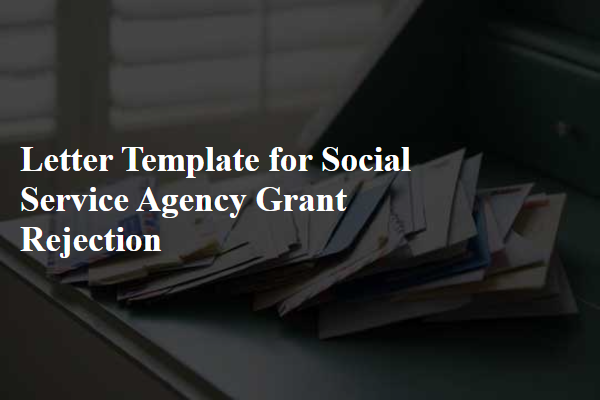
Clear subject line
The rejection of a grant application by a social service agency can have significant implications for funding community programs, which aim to provide support and resources to underserved populations. Notification letters commonly include crucial details such as the agency's name, the specific grant program, and the application date. Rejection letters typically express appreciation for the applicant's effort, while outlining reasons for the denial, which may relate to funding limitations, alignment with agency priorities, or lack of available resources. Providing constructive feedback can also be beneficial, encouraging applicants to refine their proposals for future submissions.
Polite and empathetic tone
A letter template for social service agency grant rejection conveys critical information with a polite and empathetic tone. This communication, essential in maintaining professional relationships, outlines the decision clearly while expressing genuine appreciation for the applicant's efforts. It acknowledges the importance of their work, highlighting the impact of their proposed projects on the community. The template can include specific reasons for the rejection, offering constructive feedback to support future applications. By incorporating language that emphasizes understanding and support, it fosters goodwill, encouraging the applicant to continue their valuable mission despite the setback.
Specific reasons for rejection
The social service agency (name) rejected the grant application due to multiple factors impacting eligibility and alignment with funding criteria. Insufficient data led to concerns regarding program effectiveness and measurable outcomes. The proposed budget, totaling ($amount), lacked clarity in expense breakdown, raising doubts about fiscal responsibility. Key population demographics fell short of target groups defined by the funding agency. Additionally, the application did not adequately address sustainability beyond the funding period of (duration). Finally, competing proposals demonstrated stronger collaboration with community stakeholders, suggesting a more robust impact potential.
Encouragement for future applications
The recent grant application process at [Agency Name] has attracted numerous submissions. Although we regret to inform you that your application did not receive funding for the current cycle, we genuinely appreciate the effort and dedication reflected in your proposal. The selection process was highly competitive, with many deserving projects vying for limited resources. We encourage you to consider reapplying in the next funding round, as your commitment to [specific cause or program] aligns closely with our mission. In the meantime, we recommend seeking feedback on your submission and exploring alternative funding opportunities within the community or from other organizations related to [specific area of focus]. Your passion and hard work contribute significantly to [target population or community], and we look forward to seeing your future initiatives flourish.
Contact information for further inquiries
The rejection notice from a social service agency, such as the Community Welfare Fund, typically includes a formal statement regarding the funding decision. Detailed contact information for future inquiries should be provided. This includes the agency's mailing address, phone number, and email address, ensuring accessibility for applicants seeking clarification or feedback. It is advisable to direct inquiries to a specific program officer, such as Jane Doe, who manages grant applications and related communications. Providing precise operational hours, such as Monday to Friday from 9 AM to 5 PM, can facilitate the process for applicants wishing to discuss their submission.

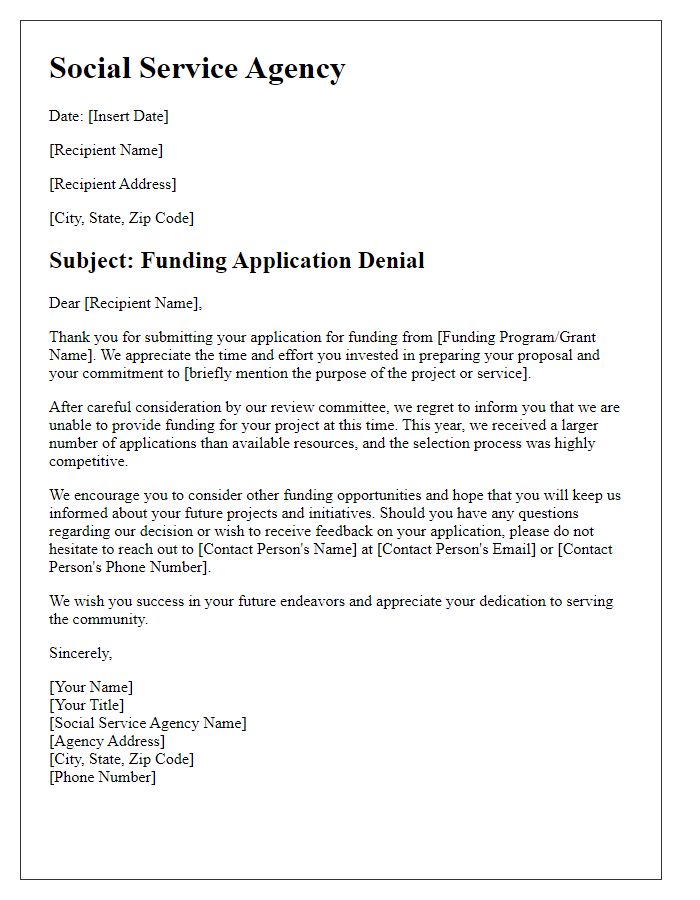
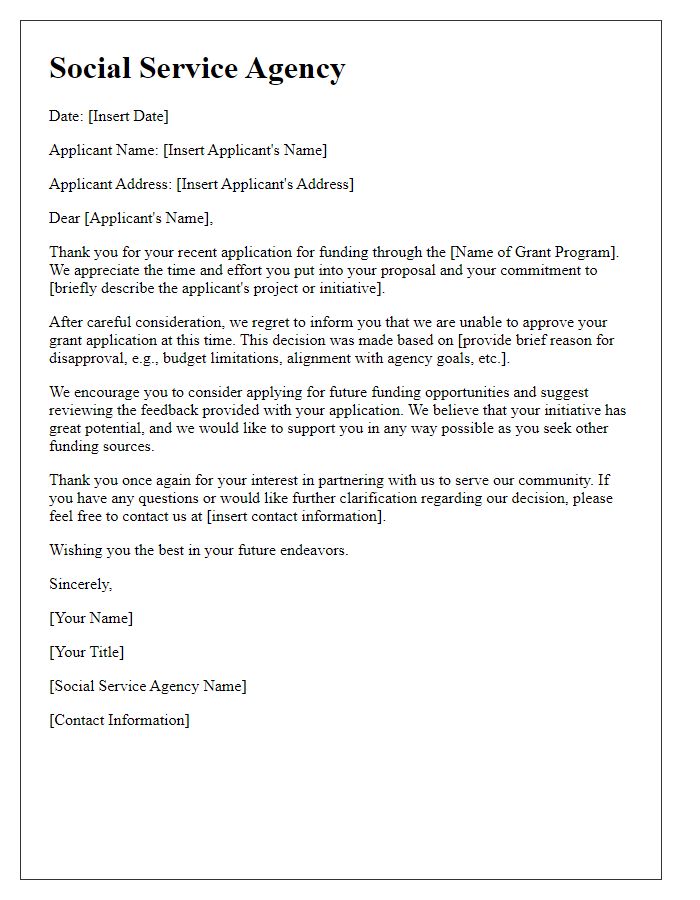
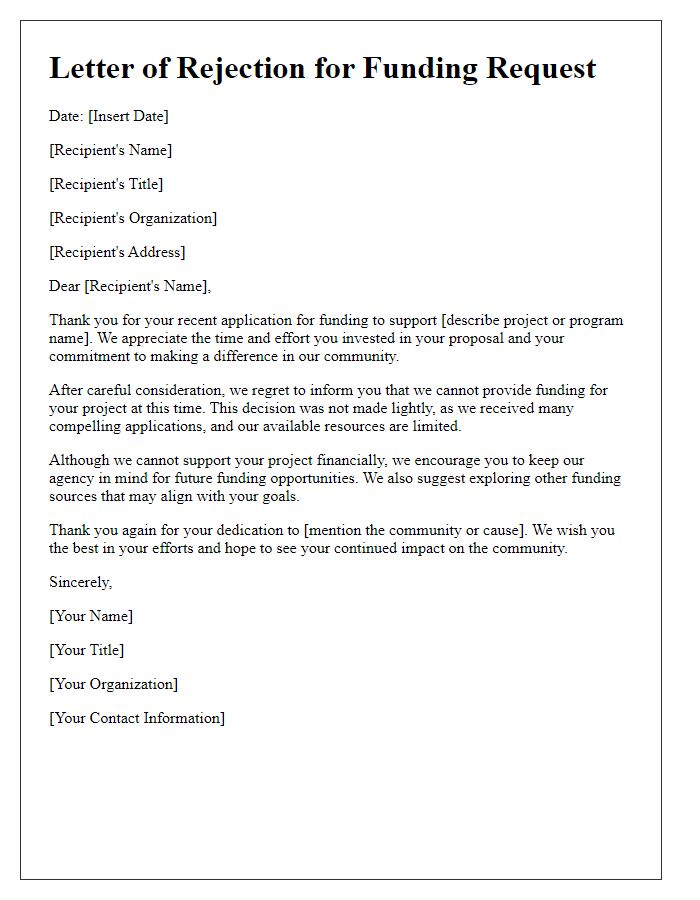
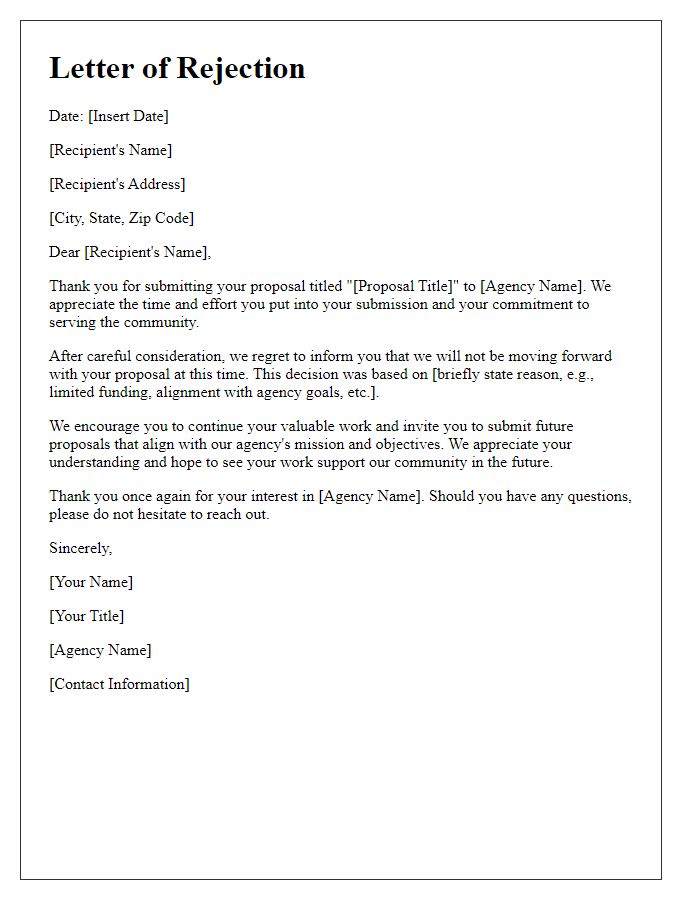
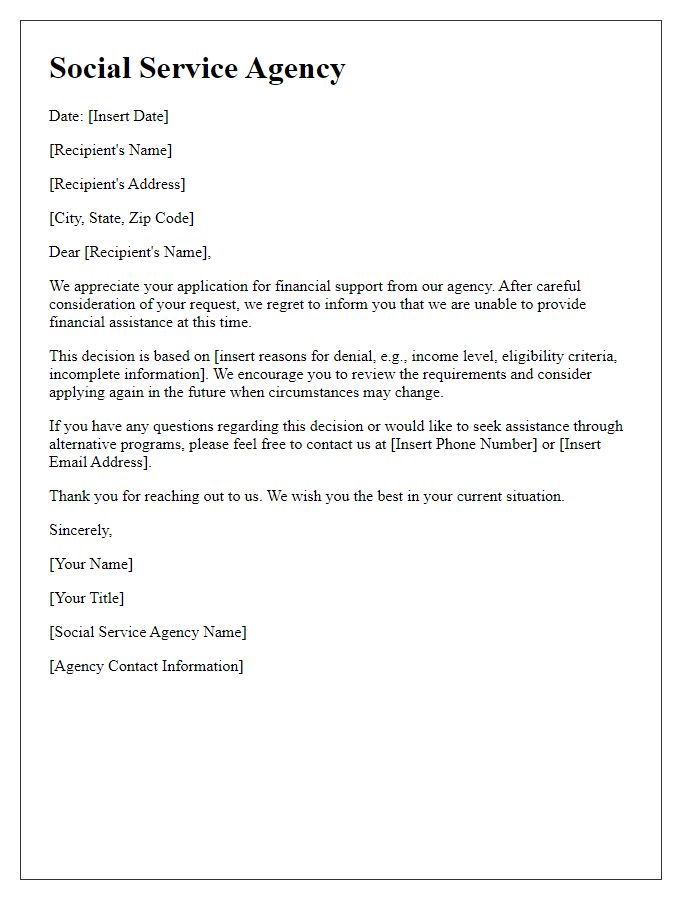
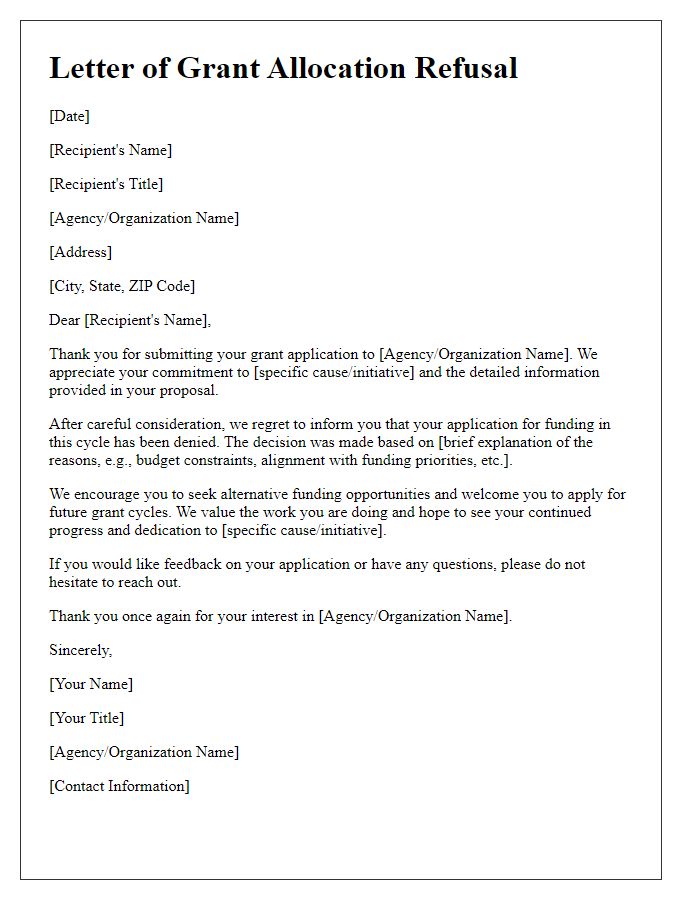
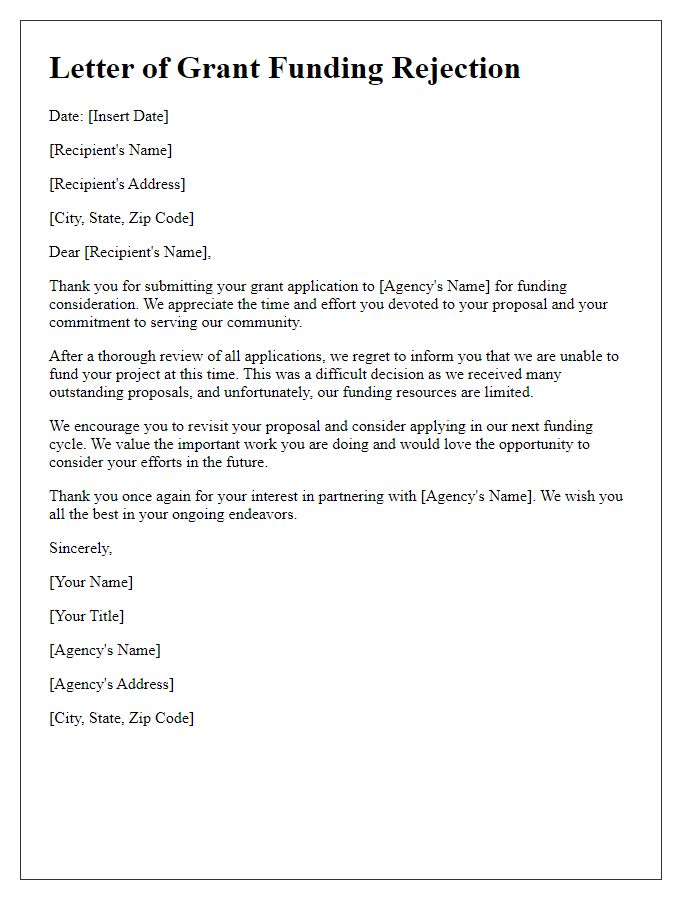
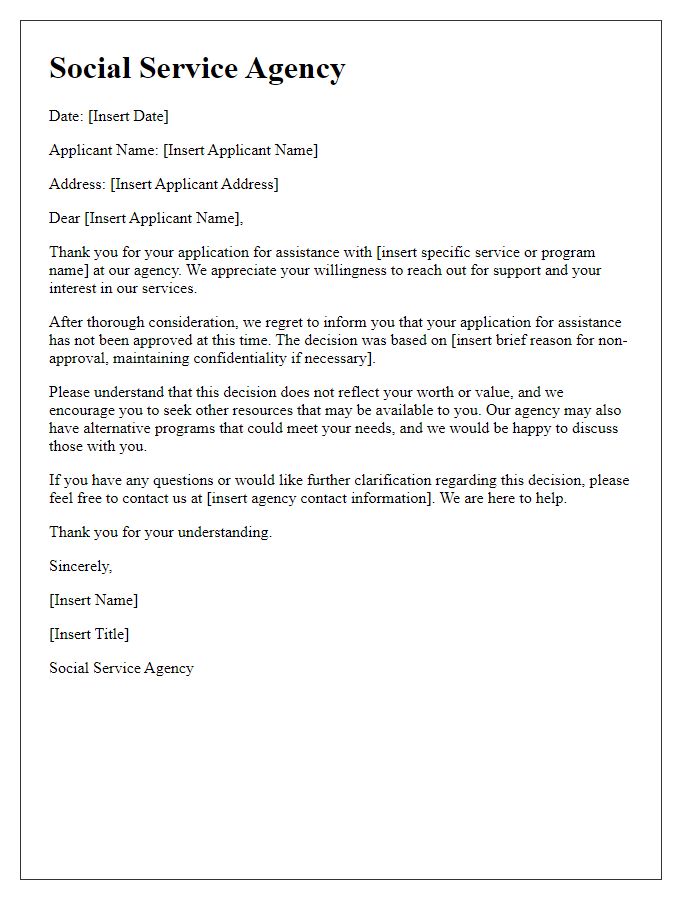
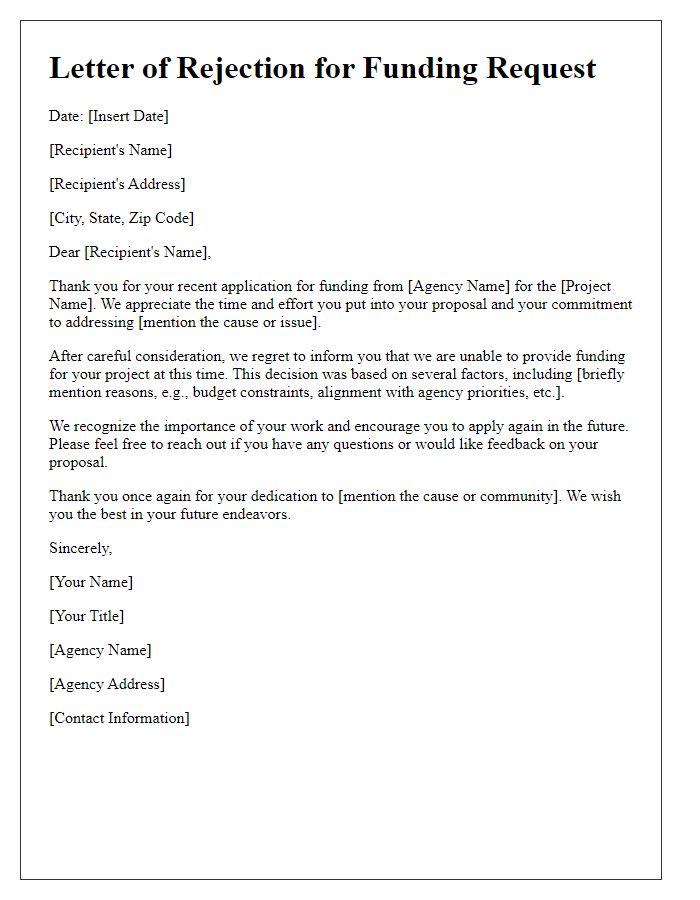
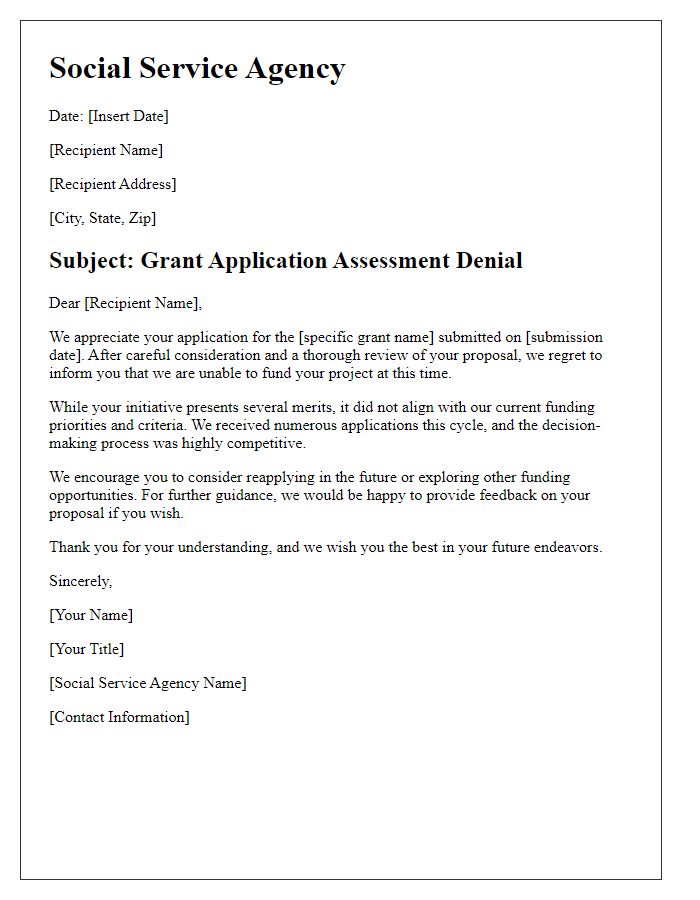

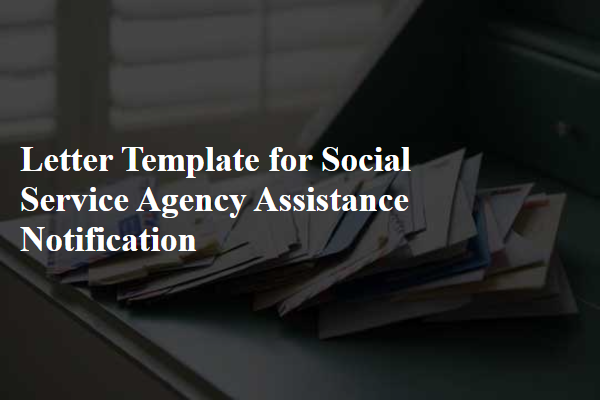
Comments